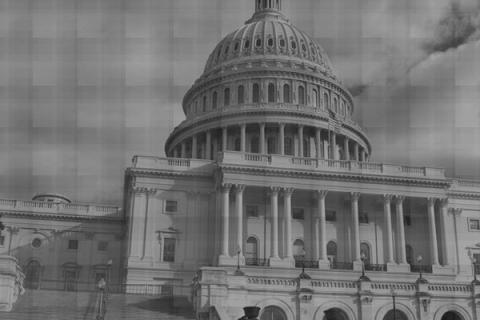 While some claim that the Occupy Wall Street movement is nothing more than a mass effort to re-elect President Barack Obama, a Fordham University poll attempting to map the political DNA of protestors has revealed an intriguing find- there's a high disapproval rate of Obama and the political system as a whole in this emerging grassroots group.
While some claim that the Occupy Wall Street movement is nothing more than a mass effort to re-elect President Barack Obama, a Fordham University poll attempting to map the political DNA of protestors has revealed an intriguing find- there's a high disapproval rate of Obama and the political system as a whole in this emerging grassroots group.
The survey, conducted by the university's Center for Electoral Politics and Democracy, shows that 73% of those who identify with the Occupy Wall Street demonstrations disapprove of Barack Obama's handling of his job as president. Disapproval among those within this movement is significantly higher than the rest of the nation, as indicated by the latest Gallup finding that currently stands just below 50%.
Despite 60% of protestors voting for President Barack Obama in 2008, only 36% plan on voting for him again in the next election. The real blow to the president comes from those who don't plan on voting at all, in addition to those who will be casting their vote for another candidate- a combined 61% of Occupiers.
The Occupy movement's disapproval of Congress stood at 97%, higher than the latest disapproval finding from Americans overall. Like the country as a whole, many within the Occupy movement are skeptical of the federal government's effectiveness. When asked how much they can trust the government in Washington to do what is right, 52% stated that the feds can be trusted only some of the time, and 42% said that the feds can never be trusted. Also like the country as a whole, a top concern of the grassroots movement is the issue of "Unemployment and Jobs" (31%).
Even though it mirrors the Tea Party in its high disapproval rating of President Obama and Congress, the Occupy movement- by a large majority of 75%- has an unfavorable opinion of the Tea Party. Only 7% have a favorable view, and 18% say that they still haven't heard enough about it.
In what may not come as a surprise, much of the movement is made up of individuals who are more or less ideologically liberal. Additionally, 15% are moderate and a very small minority consider themselves in some way conservative. Along party lines, however, 39% do not support any political party at all.
Occupiers did make it clear that they're not fond of the Republican field, but it is also noteworthy that the two Republicans drawing double digit support from the liberal-leaning crowd included Congressman Ron Paul at 21% and a candidate classified as "Other" at 19%. This last part of the poll certainly fuels speculation as to how well a third party candidate would do in capturing the Occupy vote.
Other aspects brought to light by the poll included the fact that a majority of individuals in the movement don't identify themselves as part of a union by a 60%-40% margin. A large majority are white and males. There's also quite a mix when it comes to those who are employed versus those who are unemployed, and the education level of those involved. The average age of the protestors is 33.
The Fordham poll was conducted October 14-18, 2011 and was based on interviews with 301 respondents with a 78% response rate. Under the direction of Professor Costas Panagopoulos, a team of 15 researchers conducted the research of protestors in New York.
